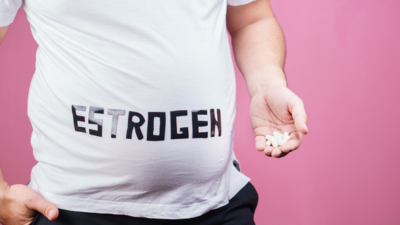ARTICLE AD BOX

Gynecomastia, often referred to as "man boobs” is the development of breast tissue in males, is more common in teenagers than most parents realise. While often dismissed as “baby fat” or a temporary change, it can cause years of emotional distress if not understood and addressed early.We spoke to Dr Rajat Gupta, a board-certified Plastic Surgeon and National Secretary, Indian Association of Aesthetic Plastic Surgeons (IAAPS) and got deeper insights.What Exactly Is Gynecomastia?Gynecomastia is the development of breast tissue in male patients. It happens mainly due to two important causes. The first is adolescent hypertrophy, a hormonal change every boy experiences during puberty. In some, about one in six to eight boys, this leads to actual breast tissue formation.
This isn’t fat, it’s glandular tissue.This tissue usually develops during a brief period of hormonal imbalance. Once puberty completes and testosterone stabilises, the imbalance resolves, but the gland remains. No medicine, drug, or exercise can remove it. It has to be surgically treated.Another Cause Parents Shouldn’t IgnoreThe second major cause is anabolic steroid abuse. A lot of young men take anabolic steroids for gym workouts or bodybuilding.
The body metabolises these into estrogen, which can lead to gynecomastia. Certain medications can also disrupt hormone balance, triggering the condition.Signs Your Adolescent Child Might Have GynecomastiaBeing able to recognize the symptoms of gynecomastia enables both parents and their teenagers to seek timely treatment. In light of this, symptoms to look for include the following:• Puffiness around the nipple• Swelling that is firm under the areola, or imbalance in the chest region• Emotional Distress: Due to gynecomastia, teenagers tend to avoid fitted T-shirts and, to a lesser extent, swim or beach trips, feeling embarrassed socially.Psychological Effects of Gynecomastia on TeenagersGynecomastia can negatively impact self-worth and increase fear of social situations. The ongoing impact can be damaging to mental health.In teenage boys this can lead to self-consciousness, peer pressure, and body shaming, this can contribute to psychological trauma, making timely intervention crucial.Treatment – Beyond the BasicsWhile most surgeons remove the gland and fat via an incision on the chest, Dr. Gupta developed a scar-minimising approach called the Occult Technique.
If a flat chest is achieved but leaves a visible scar in front, the patient may still avoid tight T-shirts, swimming, or beach holidays. The Occult Technique avoids any scar on the chest itself. So for a surgeon, it is important to place a 4–5 mm incision on the side of the chest.
Over the next few months, it heals into a faint, acne-like line.The procedure is done as a day care surgery; patients return home the same evening, resume normal activities the next day, and can restart exercise in about two weeks.Once treated surgically, recurrence is rare, but not impossible. Gynecomastia cannot recur unless the patient has a hormonal imbalance or continues taking medicines like steroids that disrupt hormones. That’s why it is advised to check for ongoing hormonal issues before surgery.Why Early Intervention MattersThe physical correction is straightforward, but the emotional recovery is often tied to how quickly the condition is addressed. If left untreated or unaddressed this can lead to years of self-consciousness. Early recognition, open discussion, and timely treatment can save a young man from carrying invisible scars for life.



.png)
.png)
.png)
















 15 hours ago
3
15 hours ago
3








 English (US) ·
English (US) ·